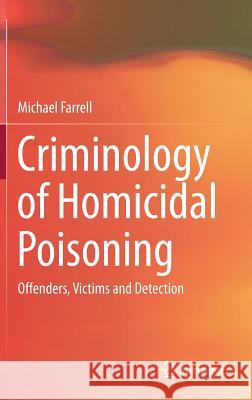Criminology of Homicidal Poisoning: Offenders, Victims and Detection » książka
topmenu
Criminology of Homicidal Poisoning: Offenders, Victims and Detection
ISBN-13: 9783319591162 / Angielski / Twarda / 2017 / 209 str.
Kategorie:
Kategorie BISAC:
Wydawca:
Springer
Język:
Angielski
ISBN-13:
9783319591162
Rok wydania:
2017
Ilość stron:
209
Waga:
4.67 kg
Wymiary:
23.5 x 15.5
Oprawa:
Twarda
Wolumenów:
01
Dodatkowe informacje:
Wydanie ilustrowane











